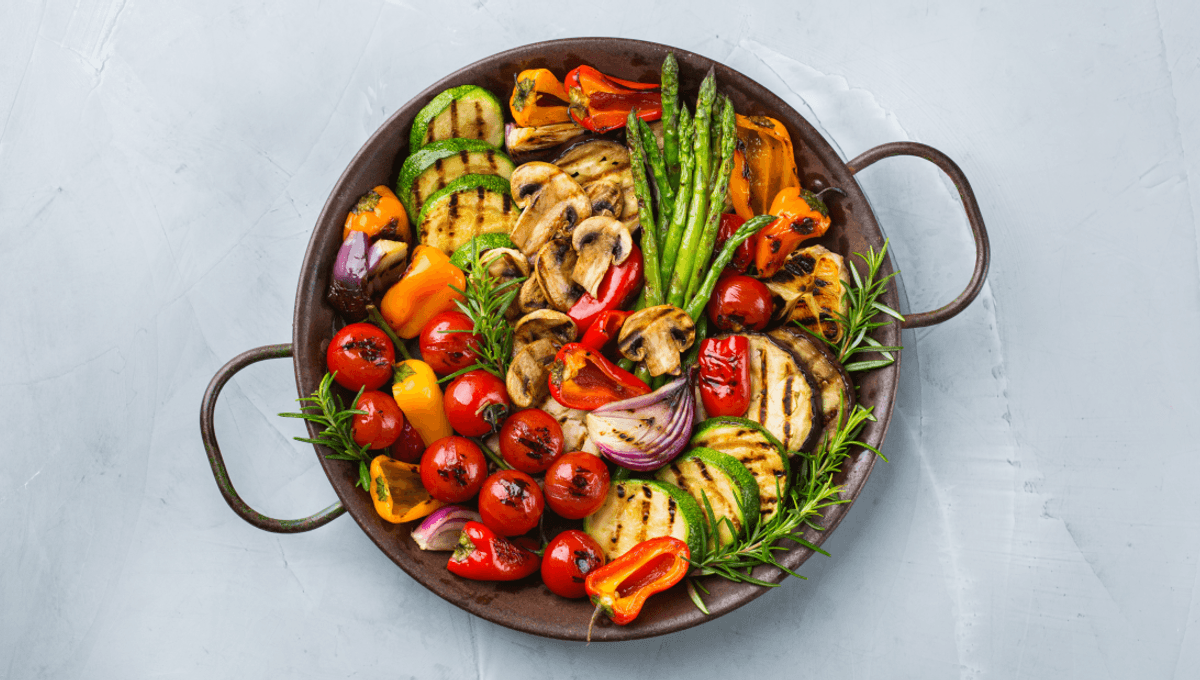
It’s no secret that our gut microbiome can influence our physical and mental health in many ways, but what’s the best way to have a favorable composition? Does one diet rule above them all? A study looked at biological samples from over 21,000 individuals to find out, revealing key differences among dietary preferences, and that there’s one thing we can all strive for to improve our gut health.
“Following diets that include or exclude major food groups such as meat, dairy, fruits and vegetables leaves its mark on the gut microbiome, which we characterized here by leveraging an integrated, multinational, metagenomic cohort of unprecedented size (21,561 individuals) with self-reported diet patterns,” wrote the authors. “We found strong microbiome configurations for vegans, vegetarians and omnivores with several characteristic microbes that confirm and expand upon several previous findings.”
Using their unprecedented dataset, the researchers discovered that although vegan and vegetarian participants had healthier diets than omnivores, the omnivores studied had a higher rate of gut microbiome diversity. Sounds like a win for the omnivores, except that gut microbiome diversity alone isn’t a reliable measurement of how healthy that microbiome is. That’s because different bacteria have different influences on our guts and wider health, and not all of them are good.
It seemed each dietary pattern had unique microbial signatures. The gut microbiomes of omnivores contained higher levels of bacteria that are associated with meat digestion, which figures, including Alistipes putredinis. However, their increased diversity included bacteria like Ruminococcus torques and Bilophila wadsworthia, bacteria the researchers say are associated with increased risk of disease including inflammatory bowel disease, heart disease, and certain cancers.
Vegans were packing a lot of bacteria that are crucial for fiber fermentation, some of which contribute to the formation of short-chain fatty acids like butyrate. Such bacteria can be good for reducing inflammation, as well as contributing to healthy metabolism and immune system function.
As for vegetarian Vs vegan, it seems the key difference here came down to dairy as vegetarians had more Streptococcus thermophilus in their microbiome signature. This bacterium is used in yogurt production and can influence certain toxins in the gut.
However, while the study dived into different dietary preferences, one of its key takeaways applied to omnivores, vegetarians, and vegans, as it was found that quality of diet really ruled above all when it came to having a favorable microbiome composition.
“We have observed that the quantity and diversity of plant-based foods have a very positive impact on the microbiome,” said study author Nicola Segata in a statement. “Avoiding meat or dairy products does not necessarily have a positive effect if it does not come with a variety of quality plant-based products.”
“From the point of view of the microbiome, what we can generally recommend is that it is important to eat many plant-based foods, especially those rich in fiber. And that food diversity is important.”
Colorful plates at the ready, let 2025 be the year of enjoying all that the vegetable aisle has to offer.
The study is published in the journal Nature Microbiology.
Source Link: How Does Diet Affect Gut Microbiome? Study Of 21,000 People Reveals All